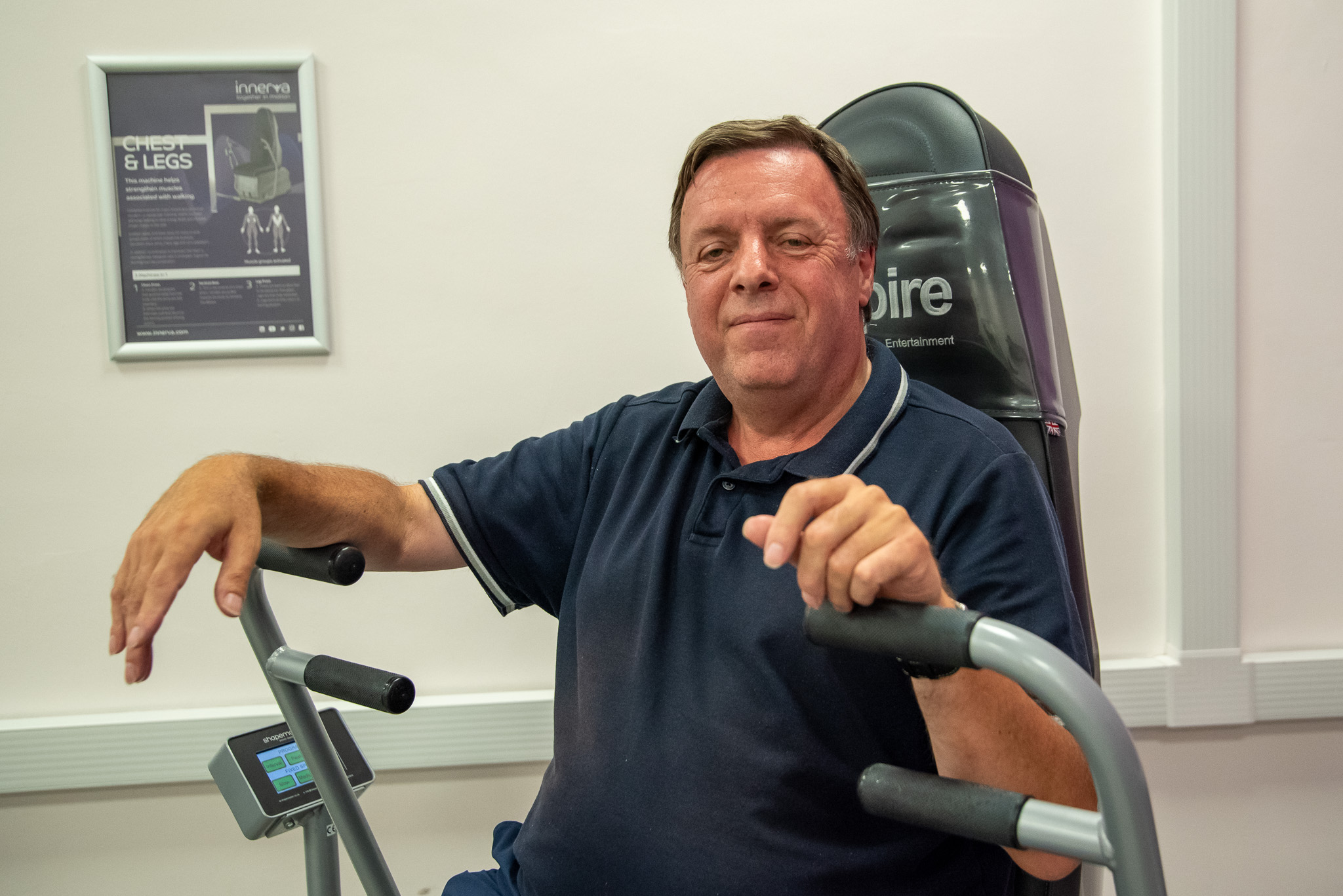Wellness Hub breaks down barriers to tackle health inequalities in North East Lincolnshire
Power-assisted Wellness Hub ranked in the top 10% for average social value per person
Facility attracts users from some of the most deprived areas of the borough and beyond
Positive impact on stroke survivors and those with cancer, diabetes & mental health conditions
The Wellness Hub is tackling health inequalities among those who don’t typically engage with conventional fitness facilities, including older adults, those on low incomes and people with long term health conditions.
New research funded by the UKRI's Healthy Ageing Challenge, shows the Innerva equipped power-assisted exercise Hub based within Grimsby Health and Wellbeing Centre is breaking down barriers to improve mental and physical health in one of the most deprived areas in North East Lincolnshire.
Max Associates and 4Global were commissioned to assess the social return of the Wellness Hub to provide a holistic review of the community impact of investing in the Innerva solution. Developed in partnership with Experian in 2015, 4Global’s Social Value Calculator (SVC) gives leisure operators, local authorities, national funding bodies and industry stakeholders a means of measuring and evidencing the social value created from investment in sport and physical activity. The tool makes these monetary figures consistent and relative across the sector, thereby allowing benchmarking. The SVC is part of the Datahub project, which is the largest repository for sport and leisure data in the UK.
The study found that by meeting the needs of those who are under-represented in traditional leisure facilities, the Wellness Hub has generated exceptional social value for the community, earning a place in the top 10 per cent of facilities when compared to sector-wide benchmarks across the UK.
It also shows how much users value the hub, which is operated by charitable trust Lincs Inspire, with many travelling past leisure facilities closer to their homes to use the specialist power-assisted equipment.
Laura Childs, Head of Marketing at Innerva says: “For years the health and fitness industry has talked about the challenge of engaging under-represented groups in physical activity. This research shows that the perceived barriers of low income, disability and long term health conditions can be overcome if operators provide an accessible offering that meets people’s needs. Lincs Inspire’s work across the borough is a blueprint for how physical activity can be made inclusive and welcoming for all.”
According to the DataHub study, the Wellness Hub has positively impacted the lives of people living with a range of conditions including CHD stroke, breast cancer, colon cancer, Type 2 diabetes, dementia, depression, hip fractures and back pain. In addition, regular Wellness Hub users have reduced their visits to the GP.
As a country, England has some shocking health inequalities with healthy life expectancy varying by up to 17 years* depending on where people live, with those in some parts of the country twice as likely to have a disability or health condition than people living elsewhere.
The health of people in North East Lincolnshire is generally worse than the England average with three quarters of adults classified as overweight or obese and just 56 per cent of adults reaching the required levels of physical activity. Mortality rates from preventable diseases for people aged under 75 are also higher than the national average.
The research shows the hub is meeting its ambitions to engage older people, with 46 per cent of users aged over 65. This is the borough’s largest population group, but historically is under-represented in leisure centres. More than two-thirds of users were female including user Nancy, who says: “It’s wonderful for your health and wellbeing and for socialising. As you get older you slow down and you can’t do certain things. Since I’ve been here, I’ve reverted back to what I used to be. I’m getting older, but my fitness is getting better.”
The former professional snooker player, Mike Hallet, once ranked world number six, has been using the Wellness Hub as part of his recovery from a stroke. Having lost all use on his right hand side, Mike is building his strength and coordination to regain his independence. His ultimate goal is to take part in the forthcoming senior snooker championships.


Fellow user and stroke survivor Lesley says: “When I first started this, I felt an instant relief. Your limbs are more mobile and the repetitive movement is good for me, particularly as a stroke victim. Your body has to relearn what it did before and the repetitive movement helps that. I have met other people with stroke and it’s nice to know how you are getting on compared to them.”
“In a region where physical activity rates fall below the England average, the Wellness Hub is successfully attracting people who would not use a conventional gym. With more than 1,000 unique users, the hub is significantly impacting activity levels and, as Lesley and Mike’s experience shows, also has extensive benefits for mental health and social wellbeing,” says Lisa Forsyth, MD of Max Associates.”
Ben Frary, Sport & Health Improvement Manager at Lincs Inspire, added: “North East Lincolnshire has some big challenges when it comes to tackling health inequalities amongst its residents, but we are proud that the SVC report shines a light on the positive steps being taken within our Wellbeing Hub to support some of our residents to be more active. The Hub is at the forefront of our health improvement strategy and has enabled us to forge closer partnerships with the health sector to collaboratively support people to better manage their health conditions. The data from the SVC report is brilliant and coupled with the numerous case studies from our members, demonstrates the impact of the Hub on the health of the borough.”
* Sport England Place Insight